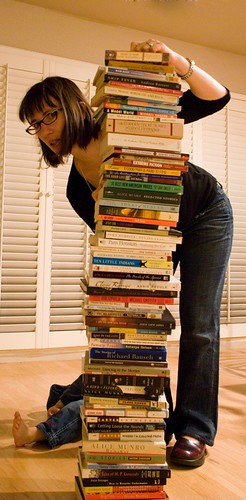Fiction is a form of storytelling in which the events and characters are not real, but rather imagined by the author. It is one of the most popular forms of literature, with countless novels, short stories, and novellas being written and published every year.
Fiction can be divided into several subgenres, including science fiction, fantasy, horror, romance, and historical fiction. Each subgenre has its own unique characteristics and conventions. For example, science fiction often deals with futuristic or hypothetical scenarios, while fantasy involves magic and other supernatural elements.
One of the great things about fiction is that it allows readers to escape from their everyday lives and explore new worlds and characters. It can also be a powerful tool for exploring complex themes and ideas, such as love, loss, and the human condition.
Fiction can also be a powerful tool for social change. Many authors have used their fiction to comment on societal issues, such as racism, sexism, and poverty. By doing so, they hope to raise awareness and inspire change.
In addition to traditional books, fiction can also be found in other forms such as comics, graphic novels, and video games. With the rise of digital media, fiction can also be consumed in the form of e-books and audiobooks, which have made it more accessible to a wider audience.
In conclusion, fiction is a form of storytelling that allows readers to explore new worlds, characters and ideas. It is a powerful tool for social change and can be consumed in a variety of forms. The possibilities for fiction are endless, making it a truly diverse and dynamic genre of literature.
What is the first fictional book ever published?
It is difficult to pinpoint the exact first fiction book ever published, as the concept of “book” has evolved over time. However, some of the oldest examples of fiction that have been discovered include ancient works from Mesopotamia, Egypt, and Greece.
One of the oldest known examples of fiction is “The Epic of Gilgamesh,” a Mesopotamian epic poem dating back to around 2100 BCE. It tells the story of the historical King of Uruk, Gilgamesh, and his journey to find immortality.
Another example is “The Tale of Sinuhe” an ancient Egyptian story, written in hieratic script on a papyrus scroll, it tells the story of Sinuhe, an official who flees Egypt after the death of Pharaoh Amenemhat I, lived abroad and eventually returned to Egypt to serve under Senusret I.
In Greece, Homer’s “The Odyssey” and “The Iliad” are considered some of the oldest examples of Western fiction. These epic poems, which date back to around the 8th century BCE, tell the stories of the Trojan War and the journey of Odysseus back to his homeland.
It is worth noting that the above examples are all considered epic poetry, not books as we know them today. The first book as we understand it today is likely to be from the invention of the printing press in the 15th century. Some of the first printed books were religious texts, but soon after fiction novels began to be printed as well, like “The Canterbury Tales” by Geoffrey Chaucer (1475) and “The Decameron” by Giovanni Boccaccio (1353) for example.












